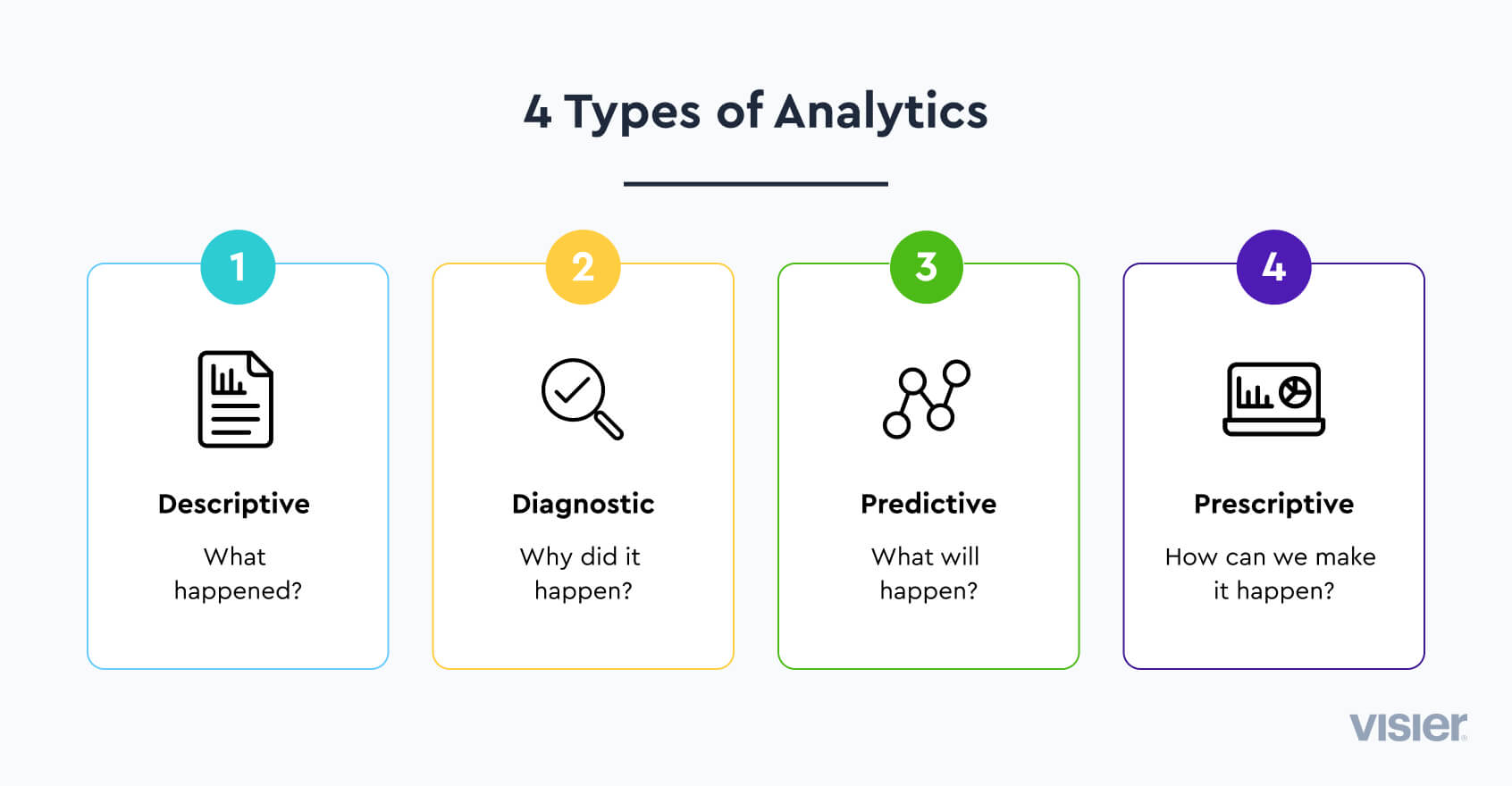Transform Information into Methods with Cutting-Edge Analytics
Transform Information into Methods with Cutting-Edge Analytics
Blog Article
Take Full Advantage Of Growth: How Analytics Drive Better Approaches
By using data insights, companies can improve their functional approaches, anticipate market modifications, and boost customer engagement. The difficulty lies not only in accumulating information but in efficiently translating it to drive concrete end results.
Understanding Data Analytics
Data analytics is a methodical computational analysis of information that allows companies to reveal significant patterns and understandings. This procedure incorporates a selection of strategies, consisting of statistical analysis, anticipating modeling, and information mining, which jointly aim to change raw data into actionable information - Analytics. By using these methods, companies can make educated decisions that are rooted in empirical evidence instead of intuition alone
The foundation of information analytics hinges on its capacity to manage substantial quantities of details from varied sources. This includes organized information, such as data sources, and unstructured data, consisting of social media sites interactions and consumer responses. Via the use of specialized software application and tools, experts can draw out and refine this information effectively, identifying fads and relationships that may not be immediately apparent.
Comprehending data analytics additionally entails recognizing the relevance of information quality and honesty. Reputable and accurate information is critical for meaningful evaluation; therefore, organizations must apply robust information governance techniques. The repetitive nature of analytics allows for constant improvement and enhancement of strategies, making sure that organizations stay dexterous in the face of transforming market dynamics and consumer habits.
Trick Benefits of Analytics

One of the vital advantages of analytics is its capability to supply workable insights. Organizations can promptly assess huge amounts of data, discovering patterns that might not be instantly obvious.
Another significant advantage is improved customer understanding. Analytics devices enable businesses to sector their target market, track consumer behavior, and personalize advertising efforts. This targeted method not just enhances customer engagement but additionally drives greater conversion rates.

Implementing Analytics Approaches
To completely understand the advantages of analytics, organizations have to take on structured methods for execution. This begins with clearly specifying goals that straighten with wider business objectives. By developing details, quantifiable outcomes, organizations can focus their analytics initiatives on areas that yield the highest possible return on investment.
Next, organizations must prioritize data governance to make sure the honesty and safety and security of the data being analyzed. This includes setting up procedures for data collection, storage space, and gain access to while adhering to appropriate guidelines. Making certain high-grade data is critical for creating meaningful insights.
Furthermore, fostering a culture of data-driven decision-making is necessary. This calls for training staff members to analyze analytics searchings for and motivating collaboration throughout divisions. They are much more likely to incorporate understandings into their daily procedures. when groups recognize the worth of analytics.
Last but not least, organizations must consistently evaluate and refine their analytics strategies. The landscape useful source of information and modern technology is consistently progressing, and remaining versatile will allow companies to take advantage of new tools and methodologies properly. By carrying out these structured strategies, organizations can make the most of the influence of their analytics efforts and drive sustainable development.
Tools for Effective Evaluation
Efficient evaluation counts on a variety of tools that help with the removal of insights from data - Analytics. These devices can range from easy spreadsheet applications to innovative device learning systems, each offering an one-of-a-kind function in the analytical procedure
Information visualization software program, such as Tableau and Power BI, plays a critical function in changing intricate datasets into understandable visual depictions. These tools allow experts to identify patterns and trends swiftly, enabling more educated decision-making.
Analytical evaluation software, like R and SAS, provides sophisticated capacities for performing extensive analyses, including regression, theory screening, and anticipating modeling - Analytics. These attributes empower organizations to attract significant final thoughts from their information, recognizing possible possibilities and risks
Moreover, database administration systems such as SQL and NoSQL data sources offer the needed framework for saving and quizing huge quantities of data effectively. They make sure that information is arranged and easily accessible for evaluation.
Finally, organization knowledge systems integrate different data sources, giving a detailed view of organizational performance. By utilizing these devices successfully, businesses can improve their analytical abilities, enabling them to create methods that take full advantage of growth and improve overall performance.
Study of Success
Effective companies typically utilize data analytics to drive impactful approaches, as shown by a number of noteworthy case researches. One famous example is Netflix, which utilizes innovative algorithms to analyze visitor choices and habits. By utilizing these insights, Netflix has actually effectively tailored its this content recommendations, causing boosted user involvement and customer retention. Their data-driven approach has undoubtedly added to their status as a leading streaming solution.

In addition, Starbucks utilizes data analytics to figure out optimum shop places and improve its item offerings. By examining customer demographics and purchasing patterns, Starbucks successfully determines high-potential markets and customizes its food selection to neighborhood preferences, driving sales and customer commitment.
These study illustrate that efficient use of information analytics can cause calculated benefits, cultivating innovation and development within companies throughout different markets.
Final Thought
In conclusion, the assimilation of analytics into business methods dramatically enhances decision-making processes and fosters lasting development. The efficient implementation of analytics devices additionally sustains dexterity and advancement, enabling companies to navigate competitive landscapes with greater accuracy.
Data analytics is an organized computational analysis of data that makes it possible for organizations to uncover purposeful patterns and insights.Recognizing data analytics additionally entails acknowledging the significance of information top quality and stability. Trustworthy and accurate data is essential for purposeful analysis; thus, companies need to carry out robust data administration practices.Next, organizations need to prioritize data governance to make certain the integrity and safety of the information being evaluated.Successful organizations often leverage data analytics to drive impactful approaches, as evidenced by several noteworthy situation researches.
Report this page